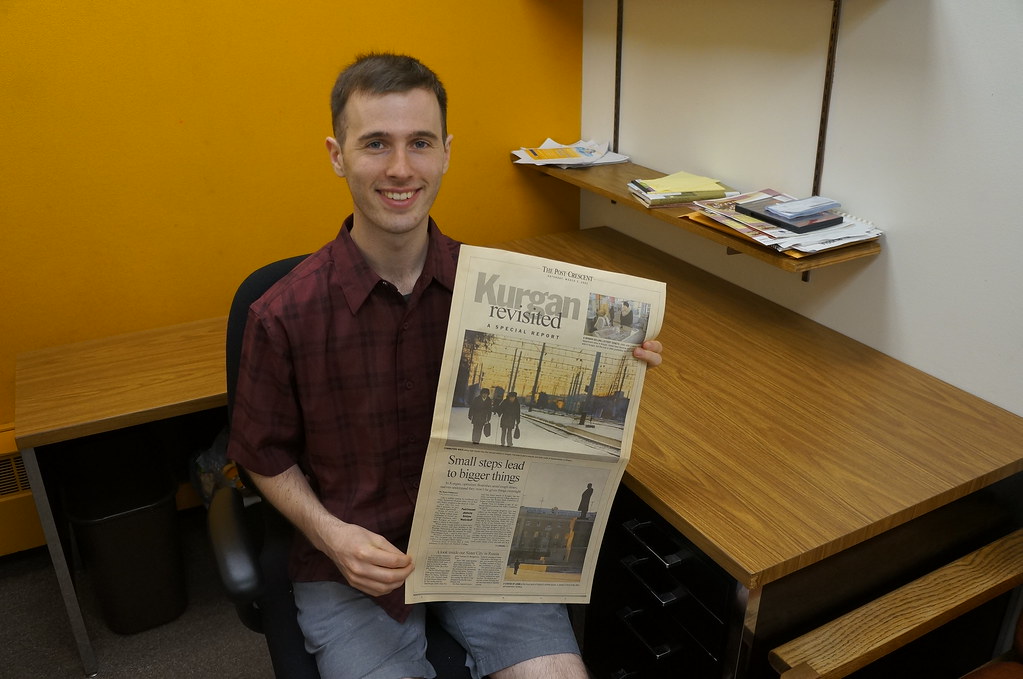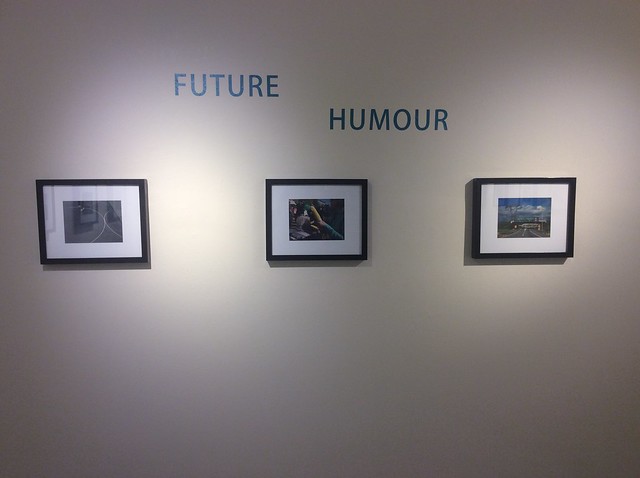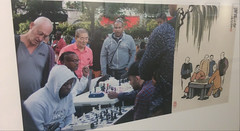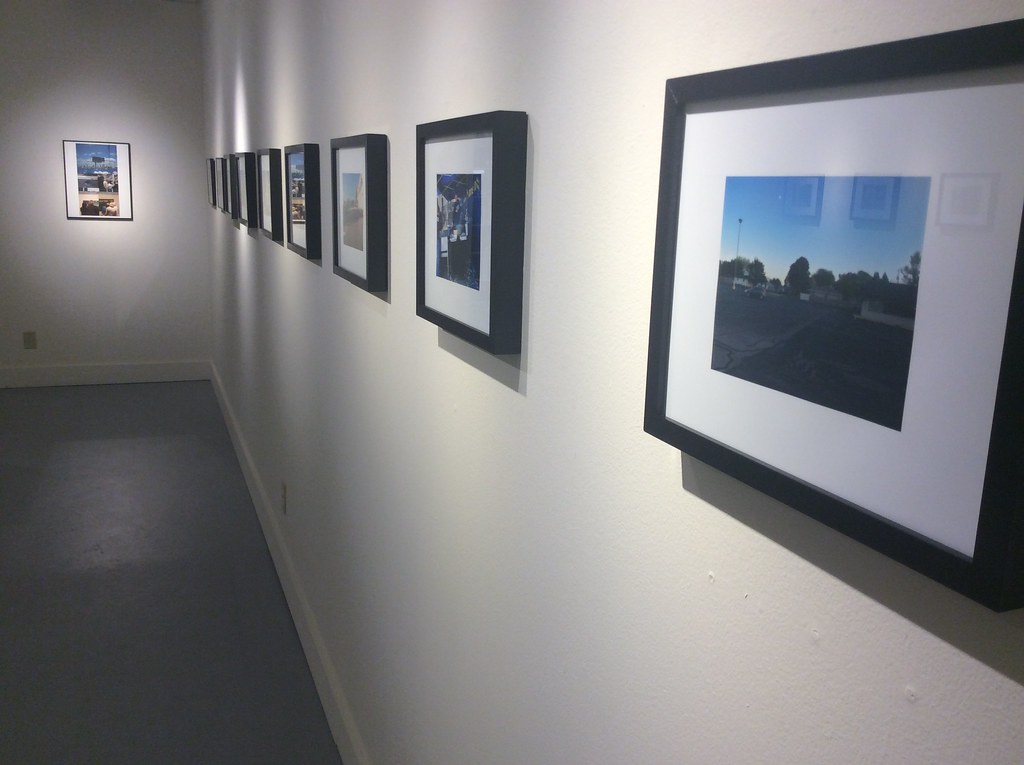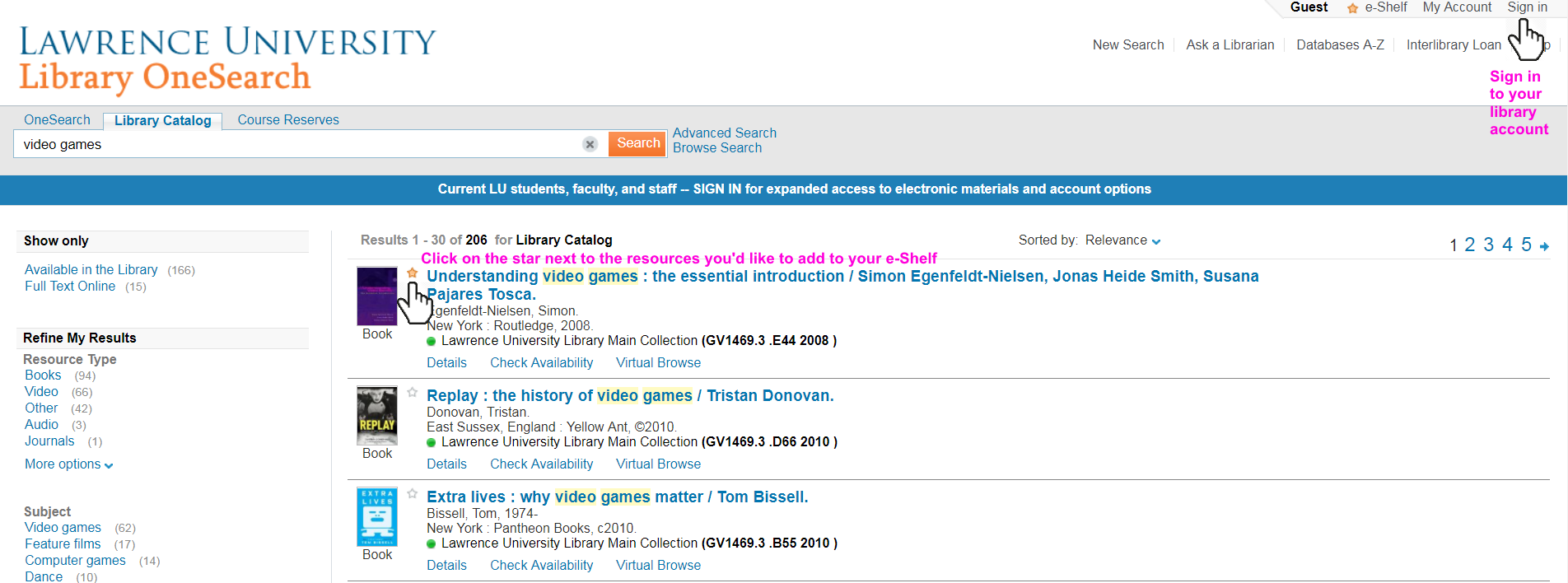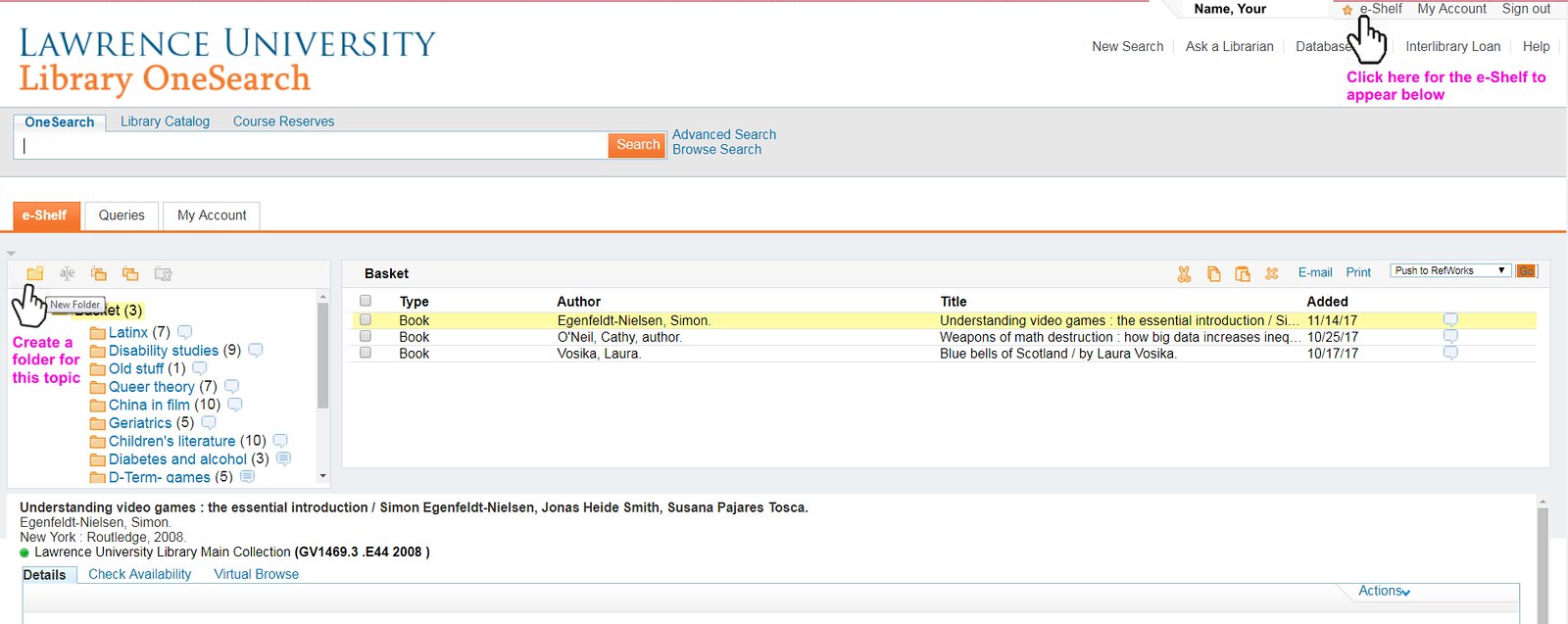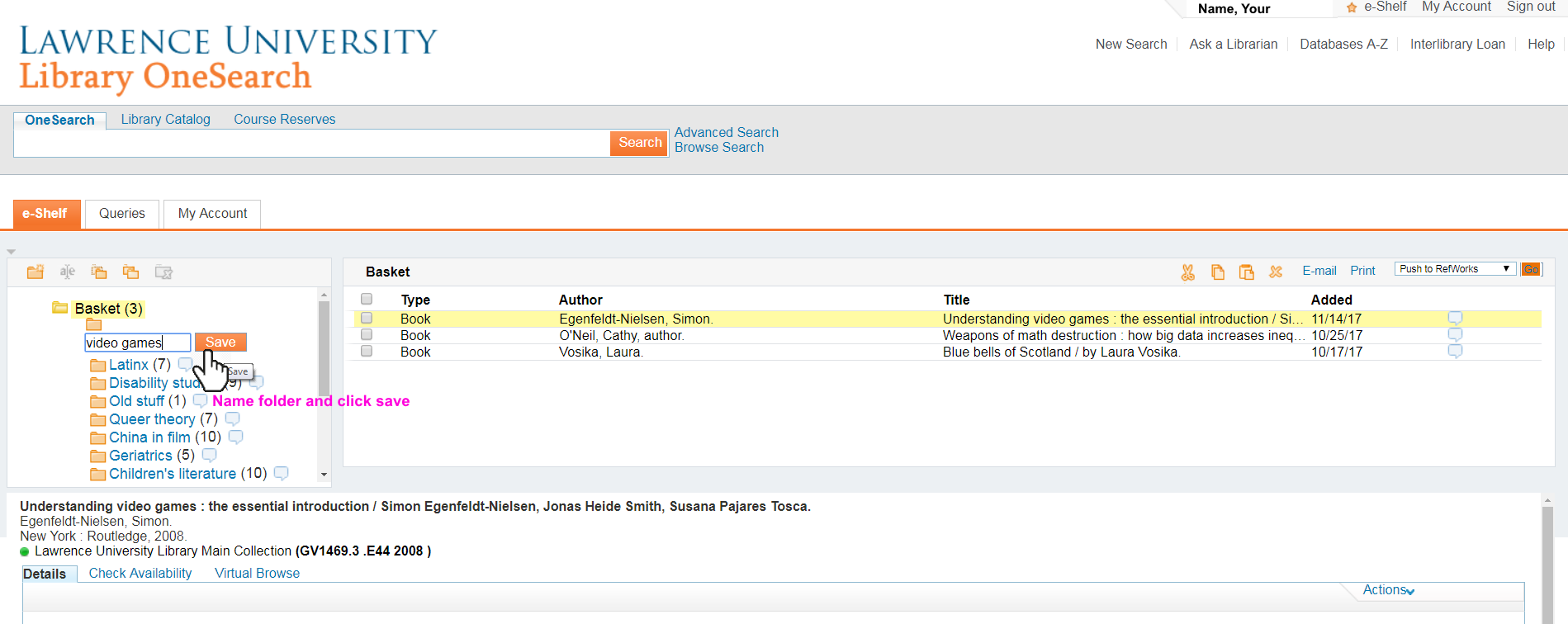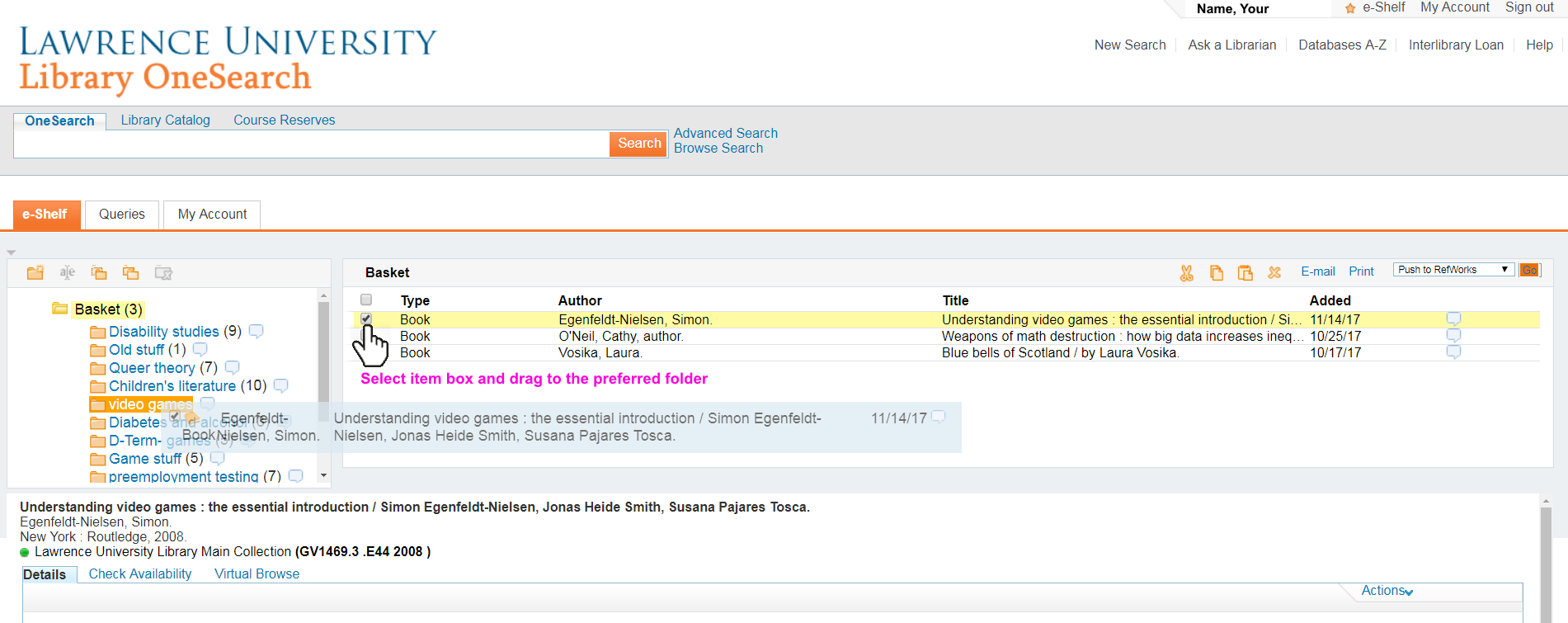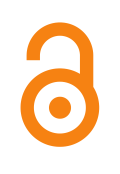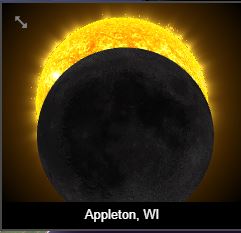 Get ready for the upcoming annual library winter break closure! In addition to visiting with family and friends and relaxing, we know many will be using this time to prepare for winter term. Here are some ways the library can help, even when the building is closed:
Get ready for the upcoming annual library winter break closure! In addition to visiting with family and friends and relaxing, we know many will be using this time to prepare for winter term. Here are some ways the library can help, even when the building is closed:
- Streaming media databases: Find documentaries, instructional videos, movies, news clips, operas, theatre performances, and much more from our varied collection of streaming video resources. Our streaming audio resources include a wide variety of music, theatre audio, and more. Many of these resources include permalinks to individual titles and the ability to make clips to use in courses, and most can be accessed off campus with a proxy login.
- OneSearch and Article databases: Find full text articles by searching in OneSearch and in many of our databases.
- ArtStor Image Database: Collect images for your courses and projects in ArtStor.
- Electronic books: Need a book? Access an eBook from our eBook databases- or from our friends at the Appleton Public Library (or your local public library).
- Course reserve forms: We have PDF forms of our course reserve cards available that you can fill out at home and print out (or save as and print out later). Find an article in one of our databases? Use this form to simply enter some information, and we’ll add your reading and fill out the card.
- RefWorks citation manager: Don’t have access to a printer? Collect and organize resources in RefWorks that you can easily locate once we’re open again.
We’ll be open again on January 2nd, from 8 am to 4:30 pm, then resuming regular school year hours on January 3rd. We look forward to seeing everyone back on campus and in the library!
